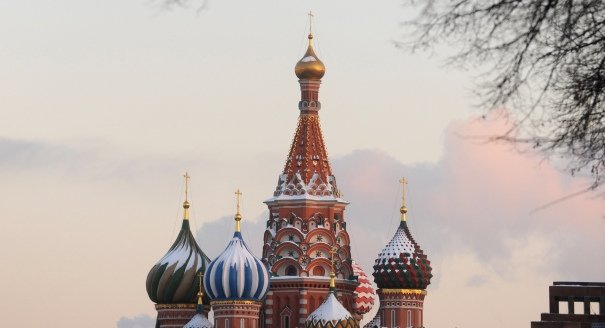Russian-American and Russian-EU relations face a deep crisis. “Never before in contemporary history have Russia’s relations been so tense with Europe, America, and its nearest neighbors (Ukraine, Georgia, Estonia) all at once.” Russia’s current movement away from Western countries, which it perceives as failed partners, may reap dangerous consequences for Russia’s domestic situation and for the international relations at large.
Trenin writes, “The West hoped that Europe could be organized around the NATO-EU pair, which would naturally ‘attract’ other countries and regions that gravitate toward the Atlantic alliance and the EU, while Russia would be satisfied with formal partnerships with both institutions. The latter assumption proved ill-founded. The policy of ‘engaging Russia’ first sputtered, then helplessly spun its wheels, and finally came to a halt.” Yet until Russia becomes a modern state, it will not be able to play the role in the world that it aspires to.
Any further expansion of NATO would be unacceptable. “Had the Membership Action Plan (MAP) been adopted [for Georgia and Ukraine], the process of integrating the former republics of the USSR into the Atlantic alliance would have become irreversible and relations between Russia and the West would have shifted from a diplomatic stand-off to active political and ‘special services’ warfare, which could inevitably lead to open and direct conflict.” Yet Russia should also review its policies, which have reached a dead-end. The tactic of maintaining “frozen conflicts” on the territory of CIS states has collapsed; a state that aspires to a great power role was in fact unable to provide security right on its own borders, and Moscow’s reluctance to follow the principle of respecting the territorial integrity of post-Soviet states received negative reactions from neighboring countries. The gas crisis also heightened tensions between Russia and Ukraine.
In giving priority to the task of national modernization, Russia must proceed along the path of rapprochement with Europe, North America, and the economically and politically developed world at large.
External pressure on Russia and interference in Russian domestic matters is “useless and senseless.” Yet until Russia becomes a modern state, it will not be able to play the role in the world that it aspires to. The main goal should be Russia’s modernization, and its foreign policy should also serve this goal. In giving priority to the task of national modernization, Russia must proceed along the path of rapprochement with Europe, North America, and the economically and politically developed world at large. “In preparing to work with the new U.S. administration,” writes Trenin, “the Kremlin might pose a question, ‘What does Russia want from America?’ – beyond the three well-known points (don't intrude into the CIS, don't expand NATO, and don't deploy troops or weapons near the Russian borders). For example, how can Russian-American relations be ‘steered’ in a direction that would really help the country modernize?”
Aside from ideas of Russian national interests “it would be beneficial for Russia to think about what it could do for the rest of the world and what responsibilities it should shoulder. Russians need to understand in which spheres they would be able to play the role of a global or regional leader.” If Russia puts emphasis on restoring its dominance in Eurasia, it “will rapidly expend its resources in conflicts with the objects of its ambitions and regional players, and will enter a period of intense competition with both America and Europe.” Such a course will bring about destructive double isolation – from inside and outside – and will block the current modernization project. This is in no one’s interest.
